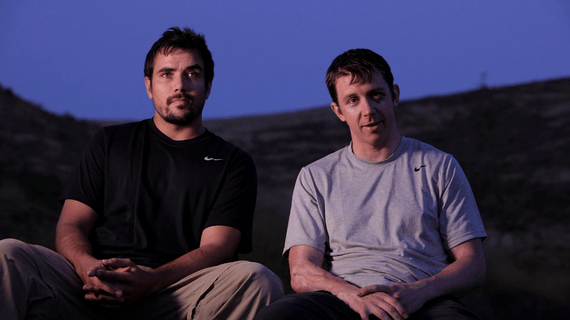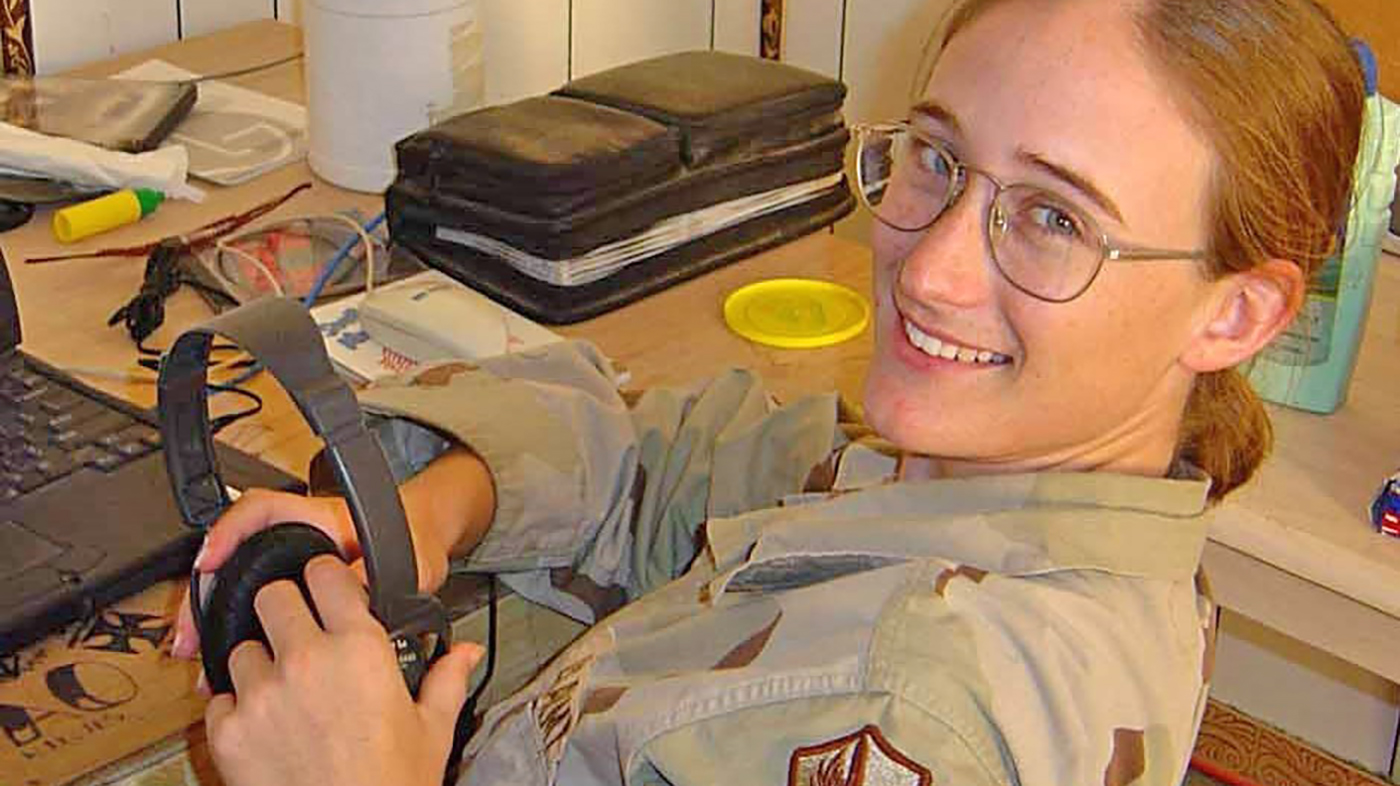The first time I watched That Which I Love Destroys Me I knew it was a film that would transform our understanding of PTSD and the debilitating issues some of our Veterans face when they come home. Watching Jason and Tyler’s journey towards recovery I saw the many faces of Veterans I know who have walked the same path. I saw the same struggles, the same hopes and fears, the same steel-eyed determination to overcome. The film struck a chord across the nation because it showed exactly what it means to grapple with these issues that so many of our Veterans are facing. And, most importantly, it showed that these are issues we can overcome when we provide treatment and support to our veterans in crisis.
For the past two years as senior director of Justice For Vets, I have traveled the country working to expand Veterans treatment courts. These innovative programs offer an alternative to incarceration for Veterans who have come into contact with the justice system due to substance abuse, mental health or trauma. The sad truth is that when these issues are left untreated, the downward spiral can be quick and destructive and too many Veterans are coming before the courts. Veterans treatment courts provide a solution that connects these Veterans with the structure, treatment, mentoring and services they need to finally feel at peace here at home. Today, there are over 260 Veterans treatment courts nationwide, and over 13,000 Veterans who would otherwise be behind bars are receiving life-saving treatment.
One of the reasons these programs continue to expand is because they work. A recent study found that Veterans participating in Veterans treatment court experienced significantly better outcomes for PTSD treatment, and some Veterans treatment courts have demonstrated success rates of over 90 percent.
At Justice For Vets, our mission is to put a Veterans treatment court within reach of every Veteran in need. We are making tremendous progress, but we must continue to push for more. There is an urgent and growing need for Veterans treatment courts to serve the tens of thousands of Veterans who are unable to gain access because one is not available.
“That Which I Love Destroys Me” helps us achieve this mission because it bridges the civilian-military divide. It helps the public understand the Veteran experience and sends the powerful message that responsibility for caring for our Veterans is shared amongst us all.
Last year, Justice For Vets partnered with Participant Media on a campaign called Return the Service, with the goal of bringing awareness to the mental health challenges Veterans face, and educate the public about critical solutions like Veterans treatment courts.
The campaign included a 10 city tour to screen “That Which I Love Destroys Me” and host dynamic community discussions around how to better connect Veterans the services they have earned. The response was overwhelming.
I am a firm believe that our values mean nothing if they are not backed up by action. The film not only exposes people to the hard truths about PTSD, it challenges them to take action to ensure veterans have the support they have earned.
Inspired by the reactions we saw during the screenings we decided to show the film to Veterans treatment court professionals during Vet Court Con, our annual training conference. Once again, we were blown away by the response. Even folks who work with Veterans every day found that the film presented the issue in a way changed their perspective. Simply put, every person who sees “That Which I Love Destroys Me” comes away inspired to do better by our Veterans.
I am thrilled that the VA is partnering with Participant Media to ensure that the film reaches a broader audience. We have just begun to see the impact it will have. An impact measured in more lives restores, more families kept intact, more veterans finally leaving the war behind and finding peace, serenity and comfort at home.
Watch the film here:

Topics in this story
More Stories
Over the five-year program, more than 14,000 VET TEC beneficiaries completed their program and nearly half have reported finding meaningful employment with an average starting annual salary of $65,000.
March is Women’s History Month, a time to celebrate and […]
VA is calling for applicants for the 2024 Specially Adapted Housing Assistive Technology grant.







What I have a hard time with is why the VA is starting to drop some of the PTSD counseling group sessions. I had been going to group for a number of years with a councilor present. Out of the blue she stated that there would be no more sessions with her being present. However they would provide a room if the group wanted to still meet without a councilor. What’s the sense of that? If you have issues to solve at the time.
We always show veterans that have been in wars that have PTSD and the horrors of war to support their cases. That is needed and great and I agree . However what about how about the ones of us that got PTSD and related problems from other than battlefield or boots on the ground.situations. I got my PTSD from racist situations, riots and fighting fellow soldiers in Frankfurt and Hoechst,Germany. I have scars and memories of being kicked and stomped by so-called fellow soldiers and I cannot attend group counseling meetings because of my distrust and memories of the times I was called (n-word redacted) and had broken coke bottles and other things thrown at me at Mcnaair Kaserne. If you served during the times of April 1963 and November 1965 in Germany contact me. We are trying to do a documentary on “The Viet Namj War-the Untold story (Racism in the Military). Contact us about your experiences so that we can let the world know the true story.
No one who has actually been in combat comes home the same. Civilians have not a clue what it is really like, nor should they. Some of us “soldiered up” for years not really believing we were so “weak” as to have PTSD and then when we quit working the axe fell.
When asked by civilians questions like, “How did you get that Bronze Star?” We are somewhat at a loss for an answer other than, “For doing my job, I guess!”
Even diagnosed Combat Vets don’t tell “war stories”. Immersion therapy, in my opinion, has no value for the vet who lives with all the symptoms for decades. It brings back all the detailed memories of traumatic events in a way we (I at least) was ill equipped to handle.
I am glad to see our young heroes seeking help early on, after return.
The worst cut is that since WWII we have not been sent to battle in a Constitutionally Declared war which just might coincide with the fact that we have not prosecuted the wars as taught in the War Colleges and quite frankly, we therefore have lost each of these foreign adventures which only serves to heighten the symptoms of PTSD.
I am turned off by your comment Mr. Cox. Carefully worded “by the way there sir” Vietnam War “Era” vet with PTSD. Says it all brother. But welcome home just the same. There is no way to explain to anyone who hasn’t been in combat anything about the experience they could even remotely connect with.
As an old and another one of those “crazy Viet Nam” Vets I am so grateful there is more emphasis on getting help to the combat vet when he returns.
I truly hope the two young heroes in this film never reach the conclusion that I have and that is that it was all for nothing. A country from leadership all the way down the line just don’t care and let our finest be sent off to foreign wars with no clear cut mission of destroying the enemy and coming home again “Victorious” at least.
PTSD is bad enough, but giving your all for a country that really could care less … should be criminal. But what can we expect with a CINC that tells the American people to head out to the mall, “we” got this!
My father, a combat Veteran (Infantry) in WWII, RVN and Korea taught me this simple but all too true poem.
“God and Soldier, all men adore;
In time of danger, and not before.
When the danger has passed and
All things righted.
God is forgotten, and the Soldier is … SLIGHTED!”
I was very turned off by CSM Jeffrey J. Mellinger’s comments at the beginning of the video. Matter of fact, I didn’t continue watching it because of his remarks made concerning a civilian who was asking what it was like to experience war in the Middle East. Rather than connecting with the civilian inquirer and explaining what it was like for him, the CSM preferred to sneer and make sure that no communication was made between the two men by arrogantly declaring that he didn’t even understand the civilian’s question. If he didn’t understand, why didn’t he ask for clarification? My assessment is that he didn’t WANT to understand.
In conclusion, why was this segment even in the video? What was the purpose of beginning a video about PTSD in a way that shuts down communication rather than facilitates is? By the way, I am a Vietnam War Era veteran who completed a four-year, voluntarily enlistment in the United States Army. I am still receiving treatment for post traumatic stress disorder (PTSD) as well as Major Depressive Disorder (MDD). I have some idea as to what the United States Army is like and how these debilitating, lifelong disorders cause lifelong psycho-social problems.
Why don’t you talk to people’s like me who been dealing with this since 2002, I joined the army in 1983 and got out in 2003 I was in Grenada Bosnia Desert Shield and Desert Storm and in operation enduring freedom I saw more combat in my 20 years then some who been in for a couple of years.